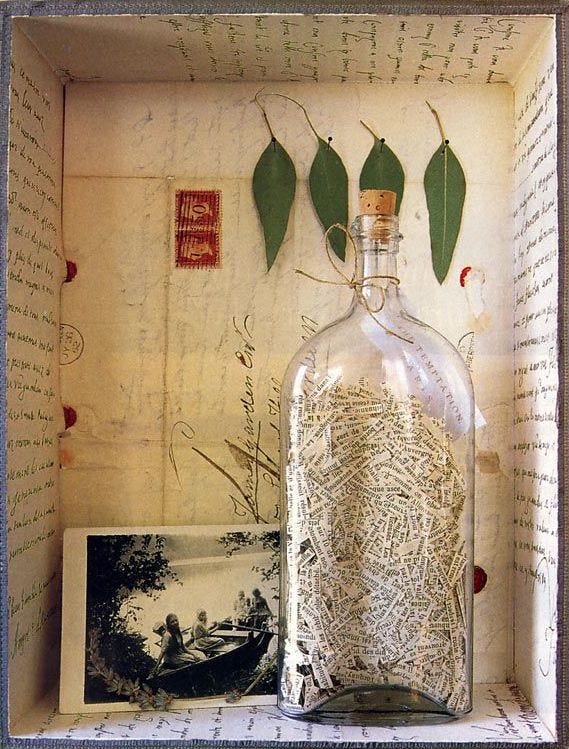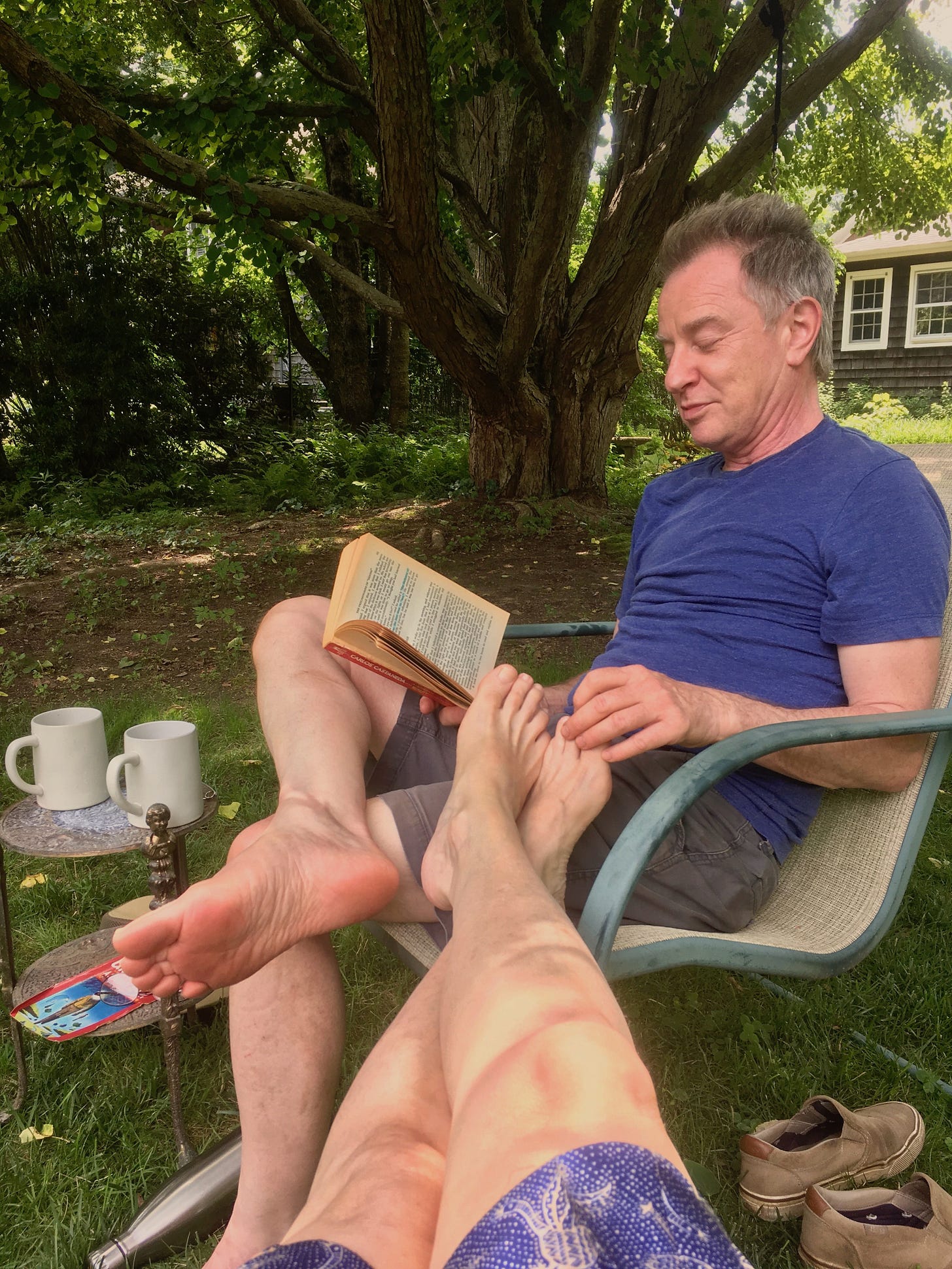Life and death in two jars,
or how I needed to feel the value of a day against the whole of my remaining days.
The following post is part of a Seed Pod collaboration about time. Seed Pods are a SmallStack community project designed to help smaller publications lift each other up by publishing and cross-promoting around a common theme. We’re helping each other plant the seeds for growth!
Many years ago - probably the year before I stopped drinking, which would make it twenty three years ago - I made a kind of clock. A thought struck me in the shower one morning, as most good ideas usually occur within proximity to warm water, what if I could figure out, roughly, how many days I had left to live? If I could count back from say ninety years, or perhaps I would give myself one hundred to be safe, to the age I was then, most likely thirty nine, then I could figure out the remaining days. I will never really know where the sudden thought popped in from. Sometimes grace just arrives.
When I got out of the shower I rushed to the kitchen and pulled a plastic bag of brown rice out of the cabinet. I tore the edge open and poured a mound onto my dining table. The day was early summer so it was warm. I opened the door to the side deck and let the sun spill in. I was too excited by my idea to get dressed, so I stayed wrapped in my towel. I did some calculations on a piece of scrap paper and then started to count grains of rice. One by one.
It was clear pretty quickly that it was an impossible task. I moved operations out to the deck, and sat on a blanket. I counted how many grains would fit in a tablespoon, and how many tablespoons would fit into a shot glass. It still took quite some time to get an approximate count of the days that stretched out to my optimistic one hundred years. I can’t remember the thousands of days I settled on. Even saying “thousands” makes me uneasy. Thousands has no meaning for me in my body. I can’t feel it. A year is 365 days. I can barely grasp that in a realistic way.
Finally I poured my estimation of days into a clear jar and set it proudly on my living room windowsill. All I would need to do was to take one grain out every day, and watch the level of my brown rice go slowly down. But I panicked. I had just made a doomsday machine. It might help me feel time slipping away, but that’s all it would do. This was all about disappearance. I needed a time machine that would allow me to feel the value of a day against the whole of my remaining days. That’s the ratio I wanted.
I realized I needed a second jar on the windowsill. This was the empty jar that I would drop the grains of my days in after taking them from the first jar. These would grow slowly higher in their jar as they accumulated, as the days spent from my other jar would diminish. This homemade clock should give me the correct ratio, a way to feel time passing as parts per whole. The value of a life in two jars. I don’t have any idea how long my jars stayed on the windowsill. And I have no memory of throwing them away.
I called a drinking buddy friend who was a lawyer and told her excitedly what I was doing. I asked her what she thought about the enterprise.There was a pause before she said: “I think you might be seriously depressed.”
OK. Well, I knew I was a depressive, but what did that have to do with my time project? I wanted to have a relationship with my life where I could value my days. I didn’t know yet that I couldn’t feel myself inside my days because I was still drinking. Now I know that drinking for me was a way to try and stop time. But that is a story for another day.
Jump ahead to the year 2020, when my husband died just a few weeks before Covid lockdown. Suddenly Time was all important again. Time stretched out agonizingly. It was all I had, alone in my house for nearly two years. I came to the conclusion in the first few months after my husband died that I needed to give him a book as a gift. His courageous life, starting as Jennifer, and ending as Nicholas, becoming sober, and dying with utter grace - all that needed to be immortalized. He left behind his many attempts to write his book himself, which I found in the attic. He may have finally gotten around to it had the lawn not needed to be weeded by hand, or the potatoes peeled in a certain way, the socks hung on special clips in the basement to dry, the chicken soup made from scratch. All of these meticulous daily tasks that marked the time of our days.
If the book we are co-authoring together is ever going to be finished and I am going to slide it into my husband’s bookshelf in his family home, then I need to account for my days. And that is how my daily writing group, Writers Daily Dive, on Substack was born.
I realize now, fifteen months into this experiment, that I have made a kind of writers clock. Showing up for one hour a day is a way to mark writing days so that I can feel their passing in relation the time I have left to write. Showing up with other writers and working together in silence has been a profound experience. Just like my sobriety, it seems impossible that I have done this so long. The days actually accumulate into something. A book accumulates. Just like in therapy sessions where you go at the same time, and same day of the week, and face the same direction for the same amount of time. It is only when one is still long enough that one can perceive the false narratives one has been telling oneself. Only when one has stopped moving that one can see where the narrative needs and can be adjusted.
Want to see more posts from this Seed Pod or join in on the fun? Head over to our roundup to learn more!








"Sometimes grace just arrives."
Indeed it does. Good piece.
Beautiful. One morsel of time in each grain of rice echoeing in a jar full of memories.